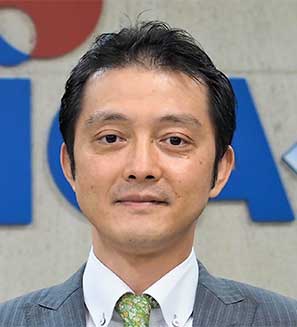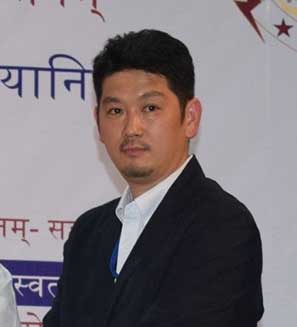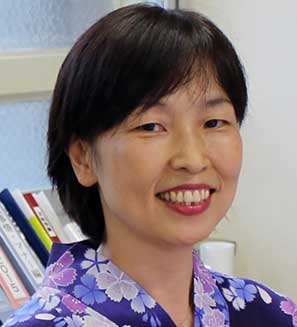

The 5th JIEPP Japan-India Exchange Seminar
“Promotion of academic and student exchanges with India”
Reporting on the activities of Tokyo University's India Office, which has celebrated its 10th anniversary, along with the current situation and challenges revealed through these activities. Additionally, introducing initiatives in India, such as the Japan International Cooperation Agency (JICA) project for the establishment of an Indian Institute of Technology in Hyderabad. Conducting a panel discussion with speakers to discuss challenges, good practices, and engage in question and answer sessions with the audience.
| Date | Fri., 10 Nov 2023 |
|---|---|
| Time | 13:00 - 15:00 JST / 9:30 - 11:30 IST |
| Platform | Online (Zoom Webinar) |
| Language | Japanese |
| Charge | Free |
| Registration | Required https://u-tokyo-ac-jp.zoom.us/webinar/register/WN_xZ4PWi2gTsyYdYneYeNrnw |
| Organizer | “Japan-India Exchange Platform Program (JIEPP)” (International Projects Promotion Group, Research Promotion Department, The University of Tokyo) |
| Speakers | Mitsuhiro Saito (Director of India Office of Japan International Cooperation Agency) Takahiro Kato (Associate Professor in the Dept. of Indian Philosophy and Buddhist Studies, Graduate School of Humanities and Sociology, Director of the University of Tokyo INDIA OFFICE) Kazunori Sasaki (Senior Manager of the University of Tokyo INDIA OFFICE) |
| Chair / Commentator | Yumiko Furuichi (Deputy Director, Professor of Division of Global Education, Institute for Innovation in International Engineering Education, School of Engineering, UTokyo) |
Speaker

Mitsuhiro Saito
Director of India Office of Japan International Cooperation Agency
Mr. Saito joined the Overseas Economic Cooperation Fund, Japan (OECF), one of the predecessors of JICA, in 1995. Starting his assignment as Representative at Kenya Office between 2001 and 2003 he has vast experience in infrastructure financing and capacity development support in African countries. In India, he first worked in a project for Coal India Limited in 1998 and was later assigned as Representative at India Office in 2006. During his 4-year tenue in Delhi he was engaged with various projects like Delhi Metro Rail Phase 2 or Bisalpur-Jaipur Water Supply Project. In August 2021, he was appointed as Chief Representative at JICA India office. He graduated in 1995 with B.A. in Law from the University of Tokyo.

Takahiro Kato
Associate Professor in the Dept. of Indian Philosophy and Buddhist Studies, Graduate School of Humanities and Sociology, Director of the University of Tokyo INDIA OFFICE
Dr. Takahiro Kato carried out research for two years (2003-2005) at the Centre for advanced studies in Sanskrit in Pune, India. He spent six years (2006-2012) in Germany, worked as a researcher at Institut für Indologie, Martin-Luther Universität Halle-Wittenberg (Dr. Phil.), also as a lecturer for German-Japanese Double Degree Program. Expertise in the area of Indian Philosophy and Sanskrit Philology. He is experienced in the academic and cultural exchange between India and Japan. Life-time member of the All India Oriental Conference.

Kazunori Sasaki
Senior Manager of the University of Tokyo INDIA OFFICE
Chair / Commentator

Yumiko Furuichi
Deputy Director, Professor of Division of Global Education, Institute for Innovation in International Engineering Education, School of Engineering, UTokyo
Prof. Furuichi gained an M.A. in 2002 and Ph.D. in 2006 from Ochanomizu University. She has been teaching Japanese language courses in the Division of Global Education for the Graduate School of Engineering at the University of Tokyo since 2002 and responsible for running the courses since 2010. Her specialty is Japanese language education and multicultural understanding. Her main areas of research have been Japanese language education focusing on engineering, corpus studies of spoken language in science and engineering, and the international exchange aimed at multicultural understanding. She has been conducting the University of Tokyo Hands-on Activity at the Indian Institute of Technology Kanpur and Bombay since 2017 to provide internationalization education.
Report
In the lecture by Dr. KATO Takahiro (Director of India Office, the University of Tokyo), he explained the formation of Japanese thought and culture, which originated from the transmission of Buddhism from India. He also explained the long history of academic exchanges between Japan and India, which has been consistently friendly despite the complex international situation. Furthermore, he mentioned the active interest shown by universities and high schools in India to visit Japanese universities, and the establishment of the India Office in 2012 by the University of Tokyo to engage in various projects and consortiums, while collaborating with various universities in Japan and India to attract excellent Indian students. He went on to mentioned that Japan has already been overtaken by India in terms of the world ranking in the number of top 10% cited papers. He pointed out that although India has a large youth population, it faces severe educational disparities. Therefore, he suggested that though engaging with the top echelons of India would be beneficial, at the same time, there is a need to consider interactions with those who are struggling with educational disparities and a need to extend a helping hand. Moreover, he explained that India's educational policy shift, known as "NEP 2020", encourages the activities of foreign universities in India. He argued that the establishment of a list of exchange gateways and the setting up of a Tanzania campus at the Indian Institute of Technology Madras have already been implemented.
In the lecture by Mr. SASAKI Kazunori (Senior Manager of India Office, the University of Tokyo India Office), he explained that while top-level Indian students receive offers from European and American companies, the majority of students face economic hardships in pursuing university education. He mentioned that the most common questions asked by local students are about scholarships and courses that can be taken solely in English. He pointed out that the awareness about Japanese universities among Indian students is low, and they often lack the imagination about studying or working in Japan. It was emphasized that there is significance in reaching out to the lower segments of students since the top-tier students tend to head towards Europe and America. He also mentioned that online Japan Study Seminars are conducted, allowing viewers from various parts of India to participate, and efforts are made to participate in other exchange events. He explained that the UTokyo India Office is also working on a plan to redirect the aspirations of Japanese language learners in India towards studying abroad. Additionally, he gave examples of Indian universities with strong ties to Japan, such as the Indian Institute of Technology Guwahati, which carries out joint degree programs with Gifu University, and the University of Hyderabad, which receives support from the Japan International Cooperation Agency (JICA).
Mr. SAITO Mitsunori (Director of India Office, JICA) explained in his talk that JICA carries out projects in India through Official Development Assistance (ODA) with approximately 70 staff members of both Japanese and Indian origin based in their office in New Delhi. He also explained the current situation in India was described as being a prominent leader as the G20 chair in 2023 and experiencing rapid economic growth. However, he pointed out that it also faces social challenges such as a population of 200 million living in poverty and of the widening inequality. Therefore, he proposed that through ODA, JICA aims to contribute to the development of both Japan and India. He mentioned that in addition to ODA, Japan provides loans to respond to the substantial infrastructure needs. However, he argued that JICA seeks to promote human interaction and move towards a collaborative relationship, shifting from merely providing support. He explained that regarding the establishment of the Indian Institute of Technology Hyderabad (IITH) by JICA, comprehensive India-Japan exchange projects (FRIENDSHIP Project) are being conducted, including the construction of buildings on the campus, facilitation of exchanges, provision of scholarships, signing of Memorandum of Understandings (MoUs), and organizing Japan Week events. He explained that JICA ultimately aims to expand the collaboration between Japan and India beyond IITH in Hyderabad by leveraging the consortium as a basis.
In response to the above lectures, Prof. FURUICHI Yumiko (Graduate School of Engineering, the University of Tokyo) provided the following comments. Regarding the UTokyo India Office, she mentioned that they celebrated their 10th anniversary and witnessed a 3.5-fold increase in the number of Indian students studying at the university, highlighting the recognition of the importance of local institutions. She also touched upon India's foreign policy, NEP 2020, expressing surprise at India's aspiration to become an educational powerhouse and acknowledging the increasing significance of IT skills in a diverse society with significant disparities. Regarding the JICA India Office, she expressed hope for the expansion of academic exchanges based on human interactions and the establishment of the Indian Institute of Technology Hyderabad as a hub. However, she noted that although there are approximately 300 Japanese language learners at IITH, they did not appear to be enthusiastic about studying in Japan. She concluded by expressing a desire for increased mutual understanding through visits from Japanese companies and students to India, which could contribute to a deeper interaction between the two countries.
After the lecture and comments, there was a question from the audience about how to deepen mutual understanding between Japan and India. Dr. Kato responded that mutual visits between Japan and India would help in getting to know each other better and emphasized the importance of providing opportunities for short-term experiential programs. He mentioned that such programs, though modest, can play a significant role. Mr. Sasaki mentioned that while there is an increase in the use of IT technologies for advertising and seminars, face-to-face interactions through on-site activities are crucial for fostering real actions and progress. He emphasized the importance of going to the local sites, meeting people in person, and engaging in meaningful conversations. Mr. Saito mentioned that while Japan's education system and the country itself have a positive image in India, actual understanding of Japan is limited. In order to bridge this gap, he stressed the need for branding efforts, effectively conveying the benefits of engaging with Japan, and making the realities of Japan known. He also mentioned that JICA is working on establishing a Japan Desk, acting as a point of contact for various academic and business exchanges, at the Indian Institute of Technology Hyderabad.
In response to the question of how to gather funds for sending students to universities in India, Dr. Kato mentioned that the lack of scholarships is indeed a challenge and requires further consideration.
When asked about what makes Japan appealing to Indian students, Mr. Sasaki responded that safety and consideration for others are often mentioned as positive aspects of Japan by Indian local students.
Regarding the question about differences in values between Japan and India when engaging with IT professionals, and what to be mindful of in interactions, Dr. Kato explained that in Japan, emphasis is placed on safety and thorough preparation before engaging in any tasks, while India tends to embrace a faster-paced approach and a willingness to start without complete preparation. He considered these differences to be mutually complementary and believed that cooperation could be formed to create new value. Mr. Saito mentioned that there are significant differences in values between Japan and India, but it is precisely from these differences that new opportunities can arise. Mr. Sasaki shared that Indian youth are often highly positive and articulate but may also have a tendency to be easily disheartened, emphasizing the importance of finding a balance.